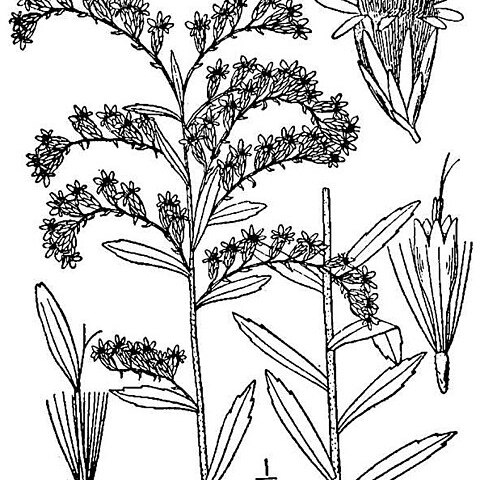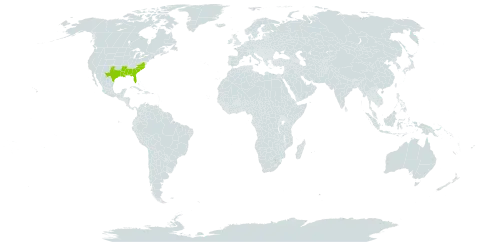Plants 30–130 cm; caudices small, woody, rhizomes creeping, elongate. Stems 1–10, ascending to erect, uniformly finely strigillose-villous distal to mid. Leaves: basal cauline nearly always withering well before flowering, linear-oblanceolate, smaller than proximal mid cauline, serrate; proximal persisting, sometimes brown-black after senescence, often twisted; proximal to distal numerous (100+ on tall stems) , crowded, sessile, blades (bright green) linear to linear-lanceolate, 20–70 × 2–7(–10) mm, margins remotely serrulate (proximal) to entire or with 1–2 minute serrations (distal), obscurely 3-nerved, one or both faces glabrous or finely strigillose. Heads 100–300+, in short to elongate, pyramidal paniculiform arrays, branches recurved, secund. Peduncles 1–4 mm, finely strigilloso-villous; bracteoles 0–2, linear, grading into phyllaries. Involucres narrowly campanulate, 2.5–3.5 mm. Phyllaries in 3–4 series, strongly unequal; outer ovate, acute, inner oblong, obtuse to rounded. Ray florets 2–8; laminae 1–2 × 0.25–0.5 mm. Disc florets 2–4(–6); corollas 2.3–3.5 mm, lobes 0.4–1 mm. Cypselae (narrowly obconic) 1 mm, strigillose; pappi 2–3 mm. 2n = 18.
More
Stems 3–13 dm from long creeping rhizomes, uniformly puberulent above the middle; lvs chiefly cauline, very numerous, sessile, linear to lance-linear or narrowly oblong, the larger ones 2.5–7 cm × 2–7(–10) mm, glabrous or ± scabrous on one or both surfaces, not prominently veined (but sometimes obscurely triple-nerved), usually at least some of the lower ones remotely serrulate; infl paniculiform, with recurved-secund branches; invol 2.5–3.5 mm, yellowish; rays 2–6, small; disk-fls 2–6; achenes short-hairy; 2n=18. Dry, usually sandy soil, often in pinelands; coastal plain from Va. to Fla. and Tex.

